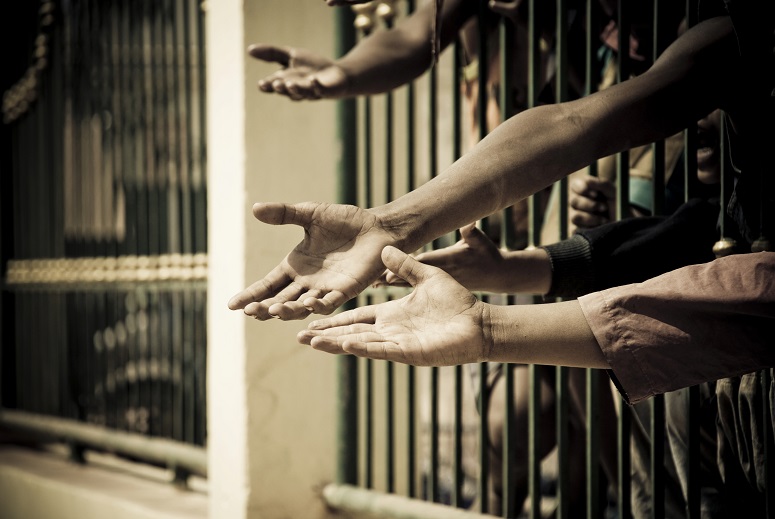The Committee for Protecting the Rights of Prisoners (CPRP) takes a decisive step toward justice by submitting a special petition to the United Nations, European Union, and the Switzerland Embassy in Sri Lanka today. The gravity of the appeal cannot be overstated, as the CPRP earnestly seek intervention to halt the disturbing trend of custodial deaths plaguing the island nation. In this event, The CPRP collaborated with the grieving family members of those who have tragically lost their lives in police custody. As they extend their plea to the UN Special Rapporteurs on Extrajudicial, Summary, or Arbitrary Executions, and Torture and Other Cruel, Inhuman, or Degrading Treatment or Punishment, the CPRP echoes the collective cry for accountability and an end to the egregious violations transpiring behind the custody walls.
Unsettling surge in custodial deaths
In Sri Lanka, the unsettling surge in custodial deaths has not only thrust a nation into mourning but has also spotlighted a stark reality-the apparent breakdown in accountability within law enforcement institutions, especially Sri Lanka Police department in this instance. As of this year (from January to November), the statistic reveals that 16 police officers have been arrested in connection with custodial killings, a revelation that paints a disconcerting portrait of systemic issues and challenges prevalent in the nation’s criminal justice system.
Three recent killings
The repeated incidents of suspects meeting untimely deaths while in police custody, as exemplified by the cases of R. Rajakumari, Samantha Preethi Kumara, and Nagaraza Alex, present a deeply unsettling reflection on the state of law enforcement and justice in the country. The fact that these deaths have now been officially identified as crimes by the respective courts, with orders issued for the arrest of those police officers who involved in these criminal activities, is a serious testament to the gravity of the situation. It forces us to confront a disconcerting reality where those entrusted with upholding the law become perpetrators of it. This disturbing pattern not only highlights systemic failures but also raises serious questions about oversight mechanisms and accountability in the Police department. Rather, it is indicative of a culture where abuse of power thrives unchecked.
Symptoms of a pervasive and systemic issue
The distressing incidents of suspects dying in police custody demand a critical examination that goes beyond viewing them as isolated incidents. These tragedies are symptomatic of a pervasive and systemic issue that urgently requires a holistic reevaluation of law enforcement practices. It’s not just about holding individual officers accountable; it’s about acknowledging a broader crisis rooted in institutional mindset, training deficiencies, and a lack of adherence to the general criminal procedure set out in the law. The call for justice cannot be satisfied solely through punitive measures against the police officers; it must propel comprehensive and enduring reforms. This means questioning ingrained attitudes within Police department, redefining training protocols to prioritize de-escalation and human rights, and establishing a stringent oversight system that ensures accountability at every level.
The lack of proactive steps from the government not only impedes justice but fosters an environment of impunity. It is a stark reminder that the pursuit of justice goes beyond courtroom pronouncements; it necessitates a robust and accountable administrative response. The failure to act decisively not only perpetuates the anguish of the affected families but erodes public trust in the very institutions meant to protect them. The pursuit of justice should not be reactive but rather proactive, addressing the root causes that permit such tragedies to unfold. Only through a fundamental shift in approach we can hope to cultivate a law enforcement environment that genuinely safeguards both the rights and lives of all individuals in its custody.
In conclusion, the wave of custodial deaths in Sri Lanka and the subsequent arrests of police officers underscore a systemic crisis that demands immediate attention. Our country stands at a crossroads, faced with an opportunity to overhaul its criminal justice system and rebuild public trust. By delving into the complexities and implications surrounding this deeply troubling trend, Sri Lanka can pave the way for lasting reforms, ensuring that the principles of justice and human rights are upheld, and tragedies within police custody become a dark chapter of the past.
(The author is an Attorney-at-Law and currently serves as the legal officer of the Committee for Protecting the Rights of Prisoners.)
|
Name of the diseased
|
Detained police station |
Court case number and the respective Court |
Date of death |
The number of police officers arrested in connection with the incident. |
|
1. A.G.S. Preethi Kumara |
Police Narcotic Bureau |
B/1360/23 Maligakanda Magistrate Court |
2023/01/10
|
7
|
|
2. R. Raj Kumari |
Police station Welikada |
B/91776/04/23 Colombo Chief Magistrate Court
|
2023/05/12
|
4
|
| 3. Jeyarasa Alex | Police Station Vaddukoddai | BR /1535/PC/23/
Jaffna Magistrate Court
|
2023/11/19
|
5 |
|
Total Number of Cases |
03 (Three) |
Number of responsible officers arrested |
16 (Sixteen) |
|
Custodial killings from January to November in 2023
